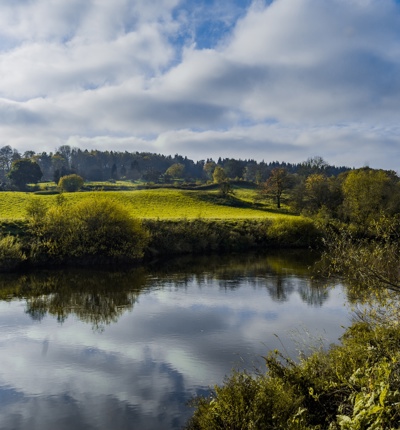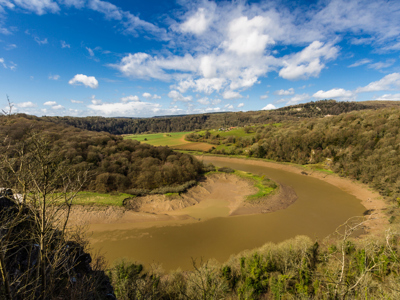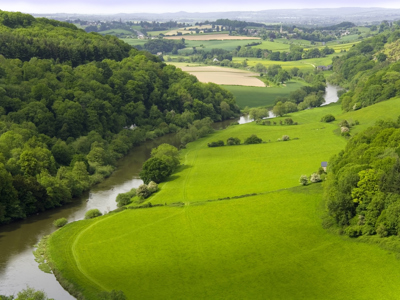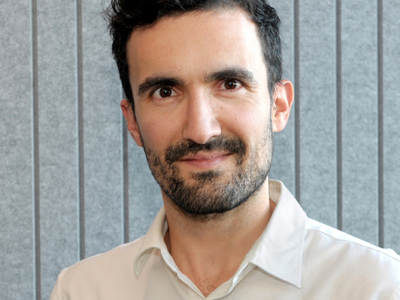
Legal challenge aims to halt growth of intensive poultry industry in River Severn catchment
A legal challenge to Shropshire Council over its decision to give planning permission for a major intensive poultry unit aims to halt the further spread of industrial scale chicken farming both in the county and the wider catchment of the River Severn.
Posted on 14 July 2024
The application for judicial review was initiated and is funded by environmental campaigning group River Action which is waging a legal fight to fully enforce regulations to prevent pollution by intensive agricultural practices in the River Wye catchment area.
River Action says the Wye catchment area has been devastated by the failure to enforce anti-pollution regulations and it is determined to help prevent similar ecological damage to the neighbouring catchment of the River Severn.
The claimant, Dr Alison Caffyn, who lives in Shropshire and is a member of River Action’s advisory board, is represented by the environment team at law firm Leigh Day.
She is challenging Shropshire Council over its decision in May 2024 to give planning permission for an application by LJ Cooke & Son for a poultry production unit that will include four poultry rearing buildings, each over 100m long, and a biomass store with boilers at North Farm, Felton Butler, Montford Bridge, Shropshire. The unit would house 230,000 birds, just 400m from an existing poultry site which is believed to house nearly half a million birds.
Permission was initially refused after Natural England advised that three protected sites, Shrawardine Pool, Lin Can Moss and Fenemere, could “be sensitive to impacts for aerial pollutants” and council officers said the plan did not detail proposals for handling chicken manure without an anaerobic digester.
However the plan was approved after LJ Cooke proposed exporting manure to a third party anaerobic digestion unit so that the digestate could be spread on farmland.
Critical objections to the application raised by Dr Caffyn and other local residents were disregarded. These included both the fact that the processing of manure at an off-site anaerobic digestion unit would not cut nitrate and phosphate groundwater pollution as the digestate would still be spread on farmland and that the Hencott Pool and Fenemere protected sites were both in “unfavourable condition” and the development should only be permitted if the “imperative reasons of overriding public interest test” could be satisfied.
Dr Caffyn has applied for judicial review on the grounds that there was:
- A failure to assess the effects of spreading manure and the emissions from burning biomass, which as indirect effects of the development, needed to be assessed
- A failure to impose a lawful planning condition on manure processing that would mean that the development would not cause groundwater pollution
- A failure to carry out a lawful appropriate assessment as required by the Habitats Regulations to ensure that the development would not adversely affect the integrity of a designated protected site
- A breach of regulation 9(3) of the Habitats Regulations, which requires the council to take steps to avoid the deterioration of habitats at protected sites
She points out that LJ Cooke used data from 2019-2021 to establish background ammonia levels, even though numerous applications for new or varied permits for poultry installations had been granted since 2020 which would enable approximately one million birds to be housed at any time in northern Shropshire.
Alison Caffyn said:
“I am delighted to have the opportunity, supported by River Action, to challenge this attempt to impose yet another massive factory farm upon the beautiful Shropshire countryside. Enough is enough. We simply cannot allow the creation of more of these giant clusters of polluting poultry units. There are already well over 20 million chickens in Shropshire, we don’t need more. Before we know it, the River Severn will soon be suffering the same pollution load as the neighbouring Wye – all because of these misguided and ill-informed planning decisions by Shropshire Council.”
Charles Watson, chair of River Action, said:
“One of the prime causes of the severe pollution of the River Wye was that when granting planning permission for the recent unprecedented proliferation of intensive factory farming units, the local county councils in Herefordshire and Powys never once considered the cumulative pollution impact that so much animal waste would have on the river catchment. Each application was treated as an individual event, with no thought being given to the fact that one of the most concentrated areas of intensive poultry production in Europe was springing up at the very heart of one of the most environmentally protected river catchments in the country.
“Like an appalling car crash in slow motion, exactly the same set of tragic events is now unfolding a few miles away in the neighbouring catchment of the River Severn. Shropshire County Council is waving through the planning system more and more huge intensive poultry unit applications, with no due consideration being given of their cumulative environmental impact and, by their own admission, are not even keeping any record of the number of intensive poultry units now operating across the region.
“River Action is determined to prevent a re-run of the environmental scandal of the Wye taking place across yet another one of the UK’s iconic rivers – hence why we have instigated and are actively supporting this critical legal action.”
Leigh Day environment team solicitor Ricardo Gama said:
“So far, the approach that we’ve seen adopted has allowed industrial concentrations of poultry and livestock to be reared in highly protected countryside locations. Our client hopes that her claim for judicial review will set a precedent for local authorities across the country determining planning applications for similar developments which will cumulatively have severe impacts on protected sites. She believes that there needs to be a complete rethink of this approach.”
Leigh Day represents River Action is its public law action and also represents people bringing a civil claim for nuisance against Avara Foods Ltd, Freemans of Newent and Cargill PLC arising from damage allegedly caused by chicken pollution in the Wye catchment area.

First legal move in River Wye chicken pollution claim
Lawyers representing hundreds of people and businesses impacted by River Wye pollution have written to Avara Foods, Freemans of Newent and Cargill PLC in the first stage of a major civil action.

River Wye claim
Residents of the Wye, Lugg and Usk River catchments are bringing a collective legal action against Dŵr Cymru Welsh Water and companies within the Avara Foods poultry group for their alleged role in polluting the region.


